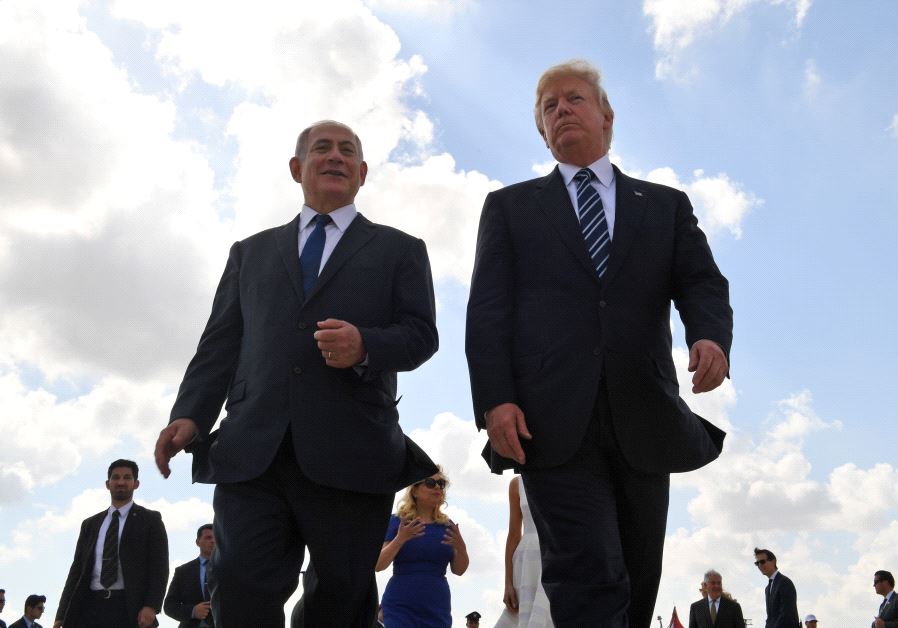My Word: Pragmatism and the presidential messenger
As Trump was whisked away to cause similar traffic havoc in Rome’s streets for his visit with the pope, Jerusalemites breathed a sigh of relief.
 Prime Minister Benjamin Netanyahu and US President Donald Trump at Ben Gurion International Airport(photo credit: KOBI GIDEON/GPO)
Prime Minister Benjamin Netanyahu and US President Donald Trump at Ben Gurion International Airport(photo credit: KOBI GIDEON/GPO)